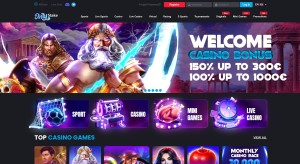A man by the name Norris Koppel moved to the UK about 18 years ago and immediately realized that he could not open a bank account. He was excluded because the financial system was geared towards people who were born there and, as he puts it, “had a roof.” Today, however, he is the CEO and founder of Monero, a KYC company that has its footprint in 20 different countries.
But that is just one case – a lot of people are still struggling with inclusive growth challenges. They include groups such as rural communities, individuals with disabilities, migrants, refugees, former prisoners, low-income communities, indigenous populations, and ethnic minorities.
Undoubtedly, marginal populations have little to no financial access or information that the rest of the world enjoys. UNESCO states that the number of out of school children dropped from 102 million to 60 million between 2000 and 2008, but then the progress stalled. Now 43% will never enter school, 24% have dropped out, and 34% will start late. About 1 in 10 children worldwide are not going to school. These are children whose parents most probably never went to school either.
However, with the current growth trend in smartphone usage and tech savviness, these groups can be introduced to modern financial technology through proper channels and structures. More so, they can generate tremendous revenues. It has indeed become clear in the fintech industry that the marginal populations are the key to unlocking wealth.
Why the marginal population holds the key to unlocking wealth
- These are people who cling on to financial practices that are not only outdated but also risky – like saving money under the mattress. However, they are also ready to absorb knowledge like a sponge. They, therefore, provide virgin fields for investors and lenders.
- Coincidentally, people with limited or no access to financial services also largely depend on loans and credit to support their daily activities. They are full of ideas, dreams, and possibilities but you don’t see their success stories anywhere. They are ready to be banked.
- Perhaps one setback is that they are not conversant with the modern trends in fintech and therefore lack the ability to use them. However, this is also an advantage for anyone ready to be transparent about their business and provide a little background education.
How to Unlock Wealth through Marginal Populations
The old saying “it takes a village…” will have to apply here. We need to work together to unlock the marginal population’s potential for the sake of the poor and unbanked, and for the sake of the global economy.
Here’s how:
- Providing education on how to achieve financial security and generate wealth.
- Provide loan preparations, credit building, and financial coaching.
- Introducing platforms and fintech that do not demand extensive credit history or too much hustle to join.
AssetStream is giving everyone a chance to be part of this dream by providing a blockchain-based platform where borrowers and lenders can perform low-cost transactions securely. It is comprehensive (complete with credit ratings and a debt collection process among other features) and capable of providing full-bodied solutions.
AssetStream is the one platform with a diverse team of professionals that understand the niche and are dedicated to actively advancing the excluded population to the new global economy through blockchain technology.
Join the Pioneers of Financial Inclusion
To reduce poverty and bring financial inclusion in your community, participate in the AssetStream blockchain-based platform and generate wealth for the society.
Disclaimer: This is a guest article. The views, opinions and positions expressed within it are those of the author alone and do not represent those of Cryptopolitan. The accuracy, completeness and validity of any statements made within this article are not guaranteed. We accept no liability for any errors, omissions or representations. The copyright of this content belongs to the author and any liability with regards to infringement of intellectual property rights remains with them.





